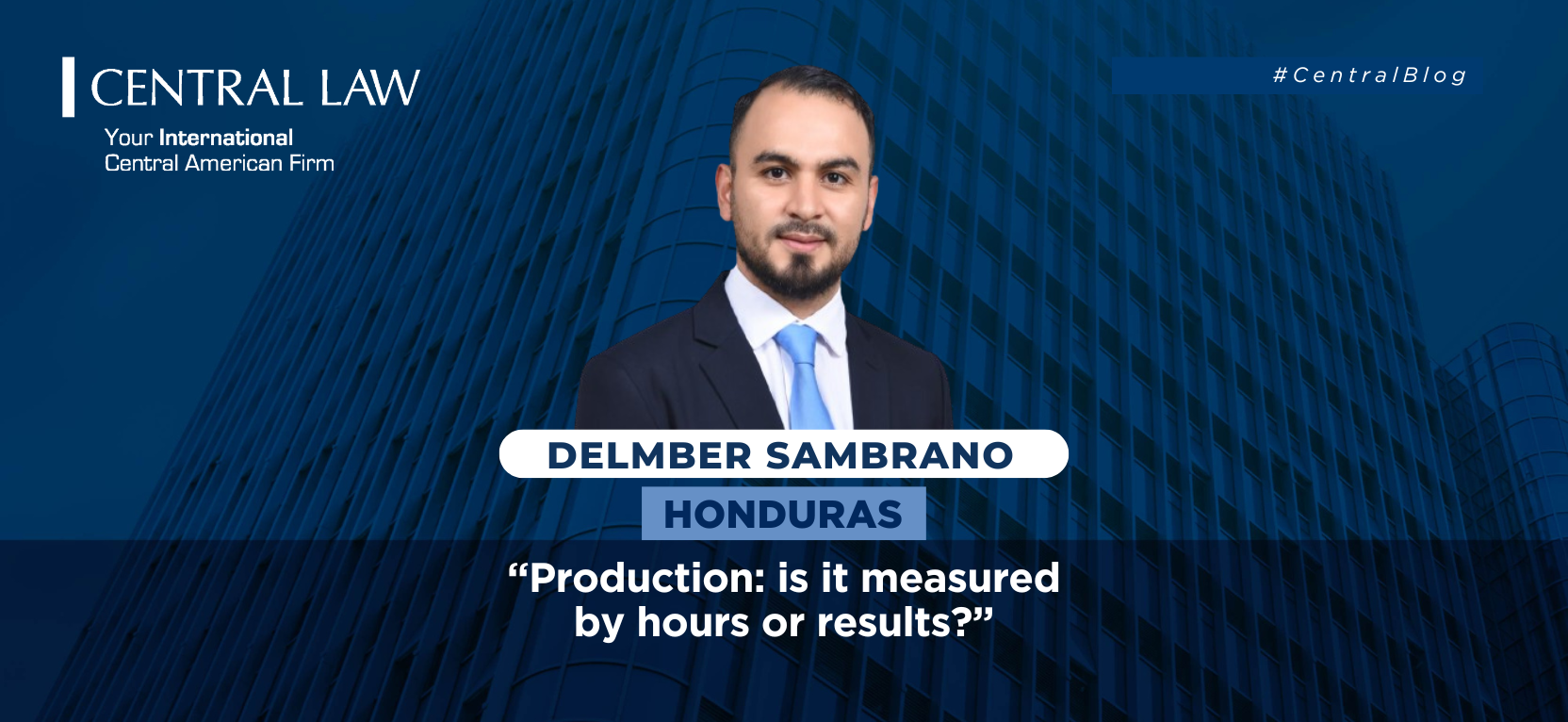Prior to the approval of the Labor Code and the current labor legislation in Honduras through Decree 189-59, Honduras was the only country in Central America without a legal framework regulating labor relations between capital and labor. This situation arose as a result of the economic and political crisis caused by the economic power of the Tela Railroad Company (Tela RR Co.), the country’s leading banana company.
In this context, the workers of Tela RR Co., operating in Honduras, initiated a strike in May 1954 that lasted until June of the same year. Their goal was to achieve union organization and pressure the State to regulate labor relations through the enactment of labor laws. This historic event led to the creation of the Constitution of Labor Guarantees, issued by Decree-Law No. 50 on February 16, 1955.
The Birth of the Workday and Labor Regulation in Honduras
The Constitution of Labor Guarantees established the eight-hour workday, with a weekly limit of 48 hours, and one mandatory day of rest, generally on Sundays. It also stipulated double pay for holidays or worked rest days and extra pay for overtime.
Years later, the Labor Code set the standard workday as that agreed upon by the parties, or, in its absence, the legal maximum workday, which is 8 hours a day and 44 hours a week. Compensation for this workday must equal the salary for 48 hours.
With this historical context on the workday, we are now faced with a key reflection: How should the productivity of workers be measured: by hours or by results?
Measuring Success: Results-Based Productivity
Regardless of the nature of a company, its management should be evaluated based on results. For example, a computer sales company will measure its staff based on the sales made, while an auditing firm will evaluate how many audits its employees complete within a set timeframe. This approach emphasizes a fundamental truth: everything must be measured by results.
In this sense, a crucial question arises: Is it necessary to reduce the workday, and if so, does this require greater commitment from the worker?
Reduced Workday: A Path to Sustainable Productivity
When an employer demands specific results in numerical terms, the productivity of a worker can be objectively assessed. This raises the possibility of reducing the workday. Studies show that people are productive, on average, for about six hours a day, not eight. Based on this, the International Labour Organization (ILO), of which Honduras has been a member since 1957, has suggested the need to adjust the workday in Latin America, taking into account technological changes and the evolution of work organization. ILO Convention No. 1 addresses this issue, recognizing the negative effects of long workdays on workers’ health and safety.
Is it Necessary to Reduce the Workday?
In Honduras, as in many countries in the region, workdays are long, with 44 hours per week, which, from the perspective of labor lawyers, makes little sense since labor rights should be progressive.
If a reduction in the workday is considered, employers might immediately think of adjusting salaries. However, the author of this article suggests that, instead of reducing salaries, they could be adjusted based on productivity. In other words, the worker who is more efficient with their work time could earn a higher salary than someone who simply fulfills a standard workday. This approach could have a positive domino effect on businesses and the labor market.
The Healthcare Sector: A Case Study in Results-Based Productivity
To illustrate how productivity can be measured efficiently, consider the healthcare sector. In this sector, professionals like doctors, dentists, and social workers often do not work the full eight hours a day but instead work an average of six hours a day, totaling 30 hours per week. In these cases, productivity is not measured by the duration of the workday, but by the results achieved. For example, a general practitioner may see up to 36 patients a day in a six-hour shift, totaling 216 patients per week. In this context, the doctor’s efficiency is clear, even though their workday is shorter than the standard one.
Now, if a doctor had a daily patient goal, such as 40 patients, and was offered a financial incentive for surpassing this goal, it would further encourage productivity without the need to extend the workday.
Labor Flexibility: A New Paradigm for Law in the Digital Age
The contemporary challenge for labor law in Honduras and globally is how to adapt regulations to the new realities of work, especially in the digital era. Concepts such as telework, which became predominant during the pandemic, present new opportunities but also legal challenges. In this sense, labor law must be flexible and adaptable to technological transformations, the changing nature of work, and results-based production.
In Honduras, telework is still in the early stages of regulation, with only one article in Legislative Decree No. 31-2020 governing this work modality. Although it is a step forward, many aspects still need to be regulated, such as the technological tools that the employer must provide and the worker’s responsibility for their use.
The Challenge of the Future: Labor Regulations That Protect and Promote Results
It is undeniable that new trends, especially labor flexibility, are shaping the future of work. What we now consider the “labor reality” will soon become obsolete as new concepts, criteria, and trends constantly emerge. The ability to adapt is a fundamental trait of lawyers, who must constantly evolve. However, the question remains: Is this transformation beneficial for labor law as we know it?
It is essential to strike a balance between workers’ rights and the needs of businesses. A company cannot survive without sales or production; these are its raison d’être, as vital as the air we breathe.
Therefore, it is time to ask ourselves: Is it time to create labor regulations that not only protect workers’ rights but also measure their performance based on the results achieved?
For more information or inquiries, please contact us at info@central-law.com
Delmer Sambrano
Senior Associate
Honduras




